Artist-Led Tour of "ENCORE" Photo Exhibit w/ Mark S. Kornbluth
Join photographer Mark S. Kornbluth for a visual exploration of NYC's Broadway theaters at Cavalier Galleries!


Art is often intentionally employed as a means of spreading political messages. Goya’s “The Third of May and Picaso’s Guerinca both sought to shed light on the brutality occurring around them and Thomas Hart Benton and Reginald Marsh’s murals depicted the idealism that the New Deal stood for. Occasionally, a work of art becomes a political rallying point purely by accident.
Ai Weiwei, a Chinese artist and activist, produced Circle of Animals/Zodiac Heads, located in the Pulitzer Fountain in front of the Plaza Hotel through July 15. This exhibit, the first to be placed in the Pulitzer Fountain, was inspired by a fountain-clock located at the Old Summer Palace just outside Beijing. The fountain-clock featured the animals of the Chinese zodiac, each spouting water at two-hour intervals. During the Second Opium War the fountain-clock was destroyed and five of the animal heads were lost to time. Weiwei’s twelve heads are cast bronze, each weighing about 800 pounds, and are set on bronze bases. The artist said that his “work is always dealing with real or fake, authenticity and value and how value relates to current political and social understandings and misunderstandings, however, because Circle of Animals/Zodiac Heads is composed of animal heads, it’s a work that everyone can understand, including children and people who are not in the art world.”
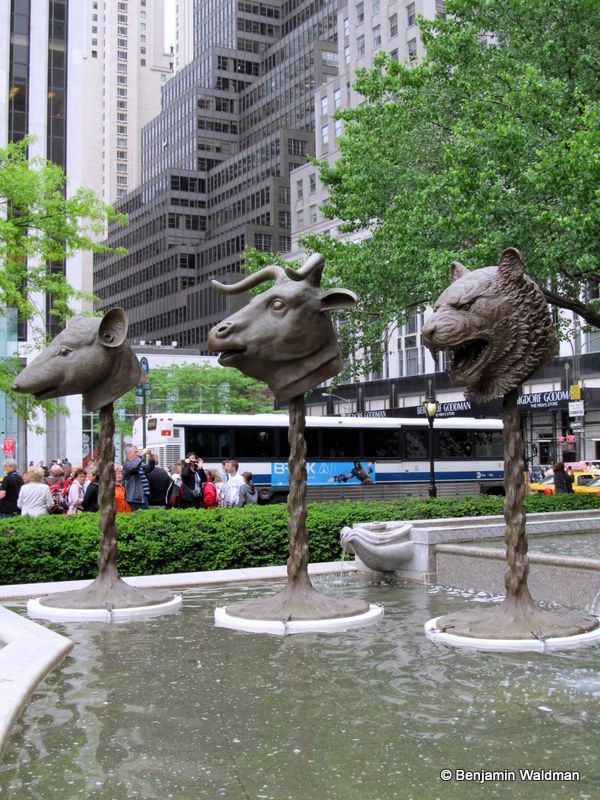
On April 3rd, Ai Weiwei was arrested while attempting to board a flight. A few days later his studio was destroyed by the Chinese authorities. As a result, the May 4 unveiling of his work occurred without the artist present and added a political aspect to this exhibit. His arrest has engendered a guerrilla street art campaign in China and has transformed the exhibition at the Pulitzer fountain into a reminder of cost some artists face for their activism.
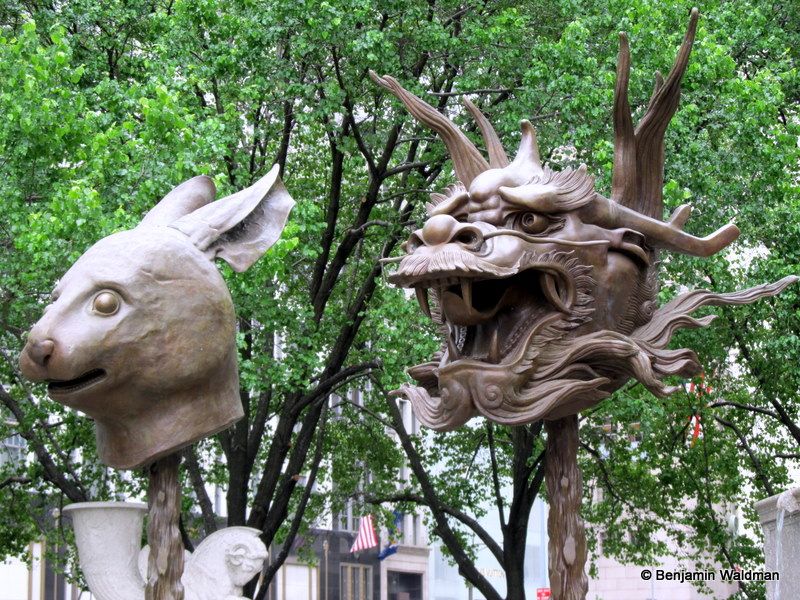
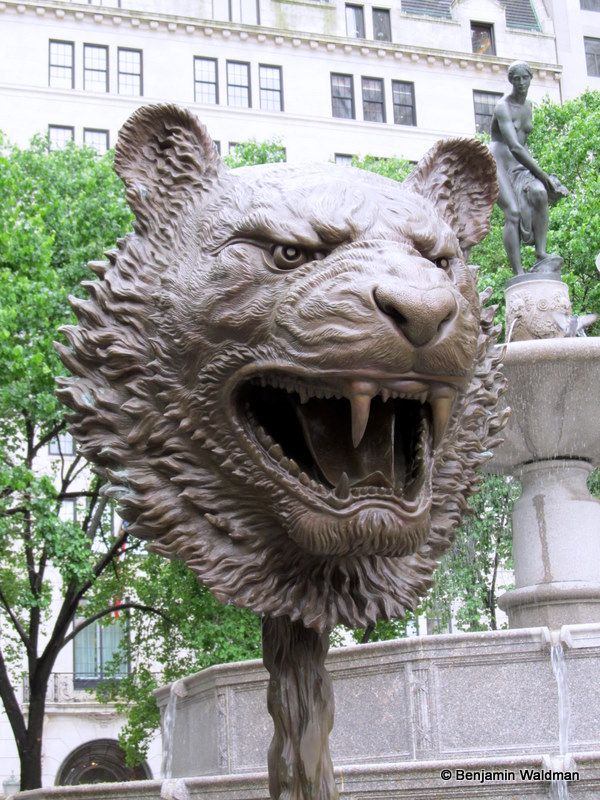
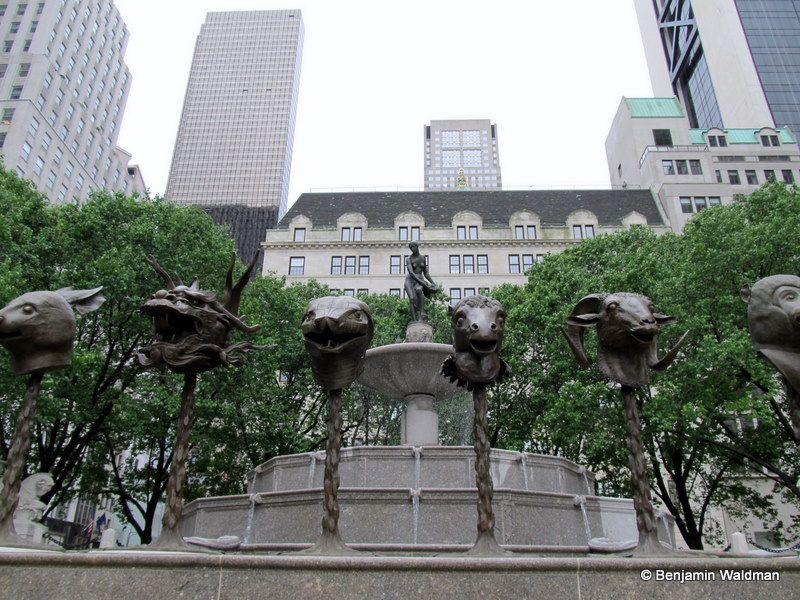
The City has set up two small kiosks selling shirts and booklets relating to the exhibit:
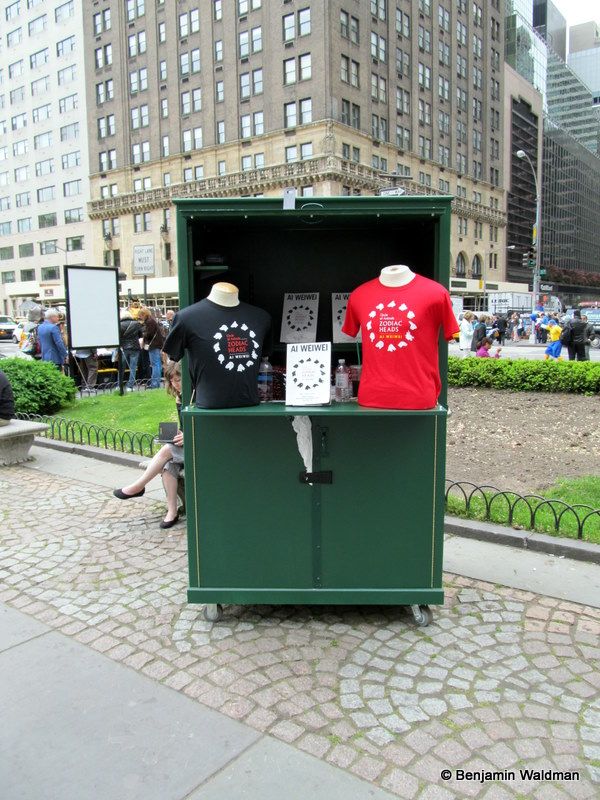
Informational poster, in case you forget your sign. Also, notice the Free Weiwei written on the bottom:
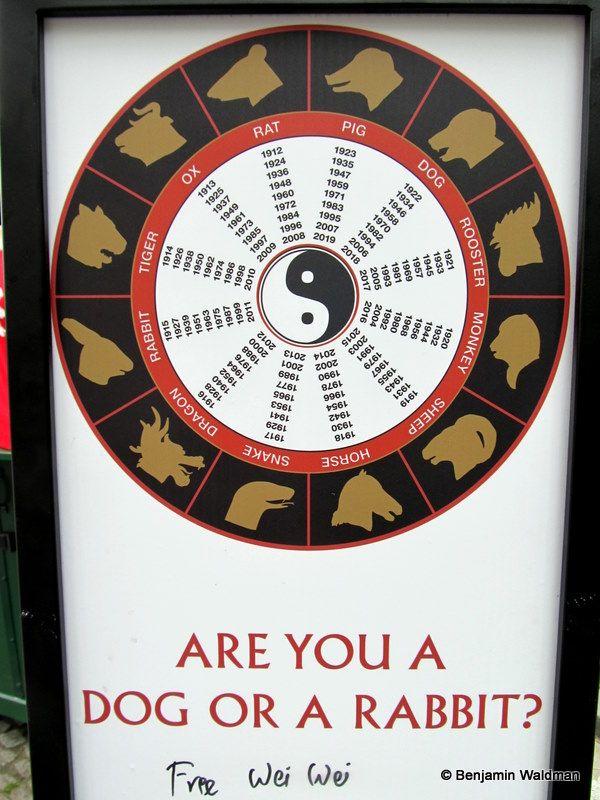
Subscribe to our newsletter